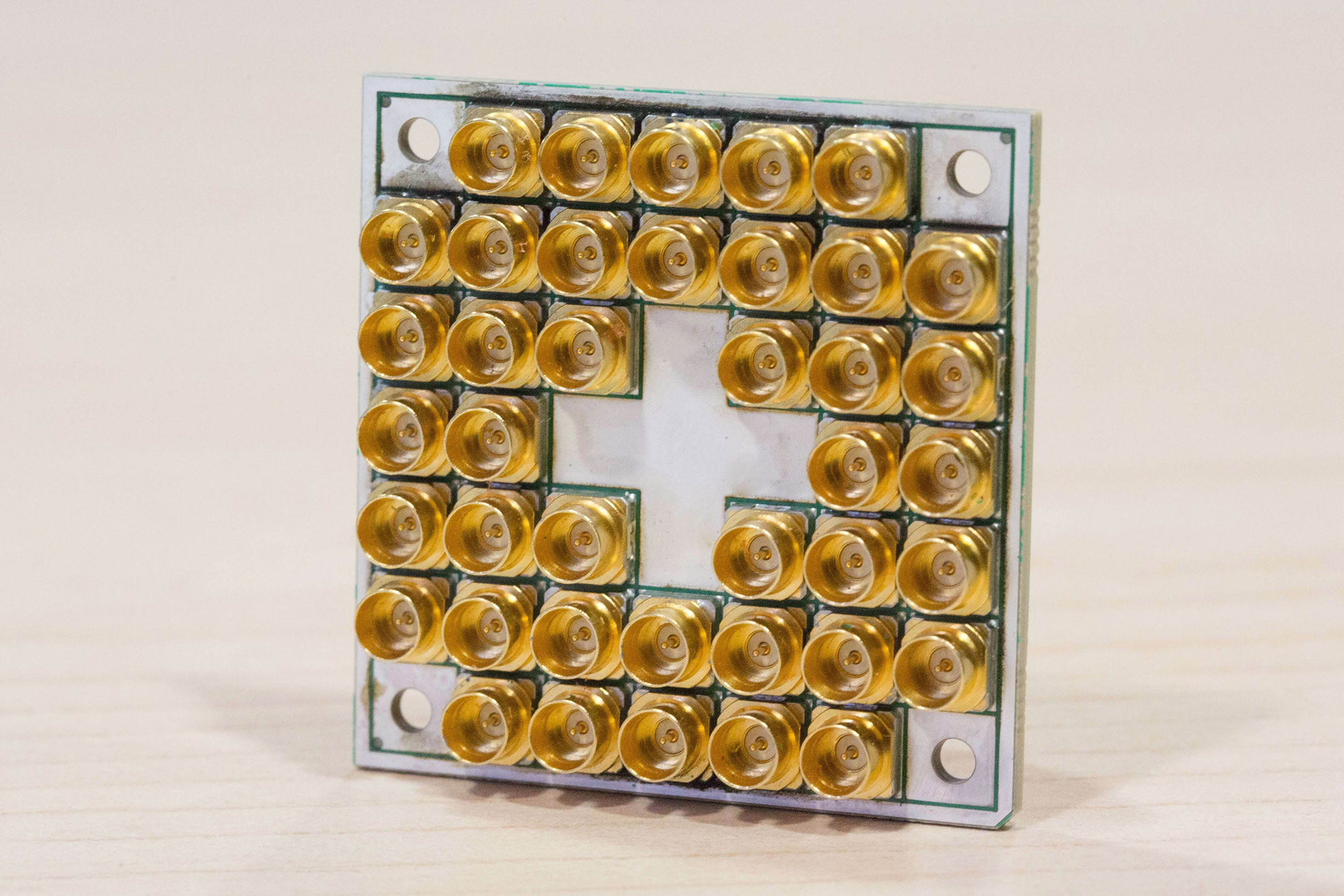Quantum computing is far from fiction but it is also out of reach for consumers and businesses with limited budgets. Intel has announced that it has successfully produced a 17-qubit superconducting chip for QuTech. Intel fabricates quantum chips, QuTech runs tests on the chips and sends feedback to Intel where its employees work to build improved renditions.
The new test chip is not a large step forward in terms of raw compute power but it is a step in the right direction towards more stable production. Producing qubits in a reliable fashion is still a difficult task even for Intel's skilled engineers. Merely observing qubits can cause data loss to occur let alone exposure to external noise.
Intel's latest quantum chip operates at 20 millikelvin, just barely above absolute zero. Operating at such low temperatures ensures that there is almost no movement at the atomic level which can induce noise. A new architecture has been developed to reduce radio frequency interference between each of the qubits on the chip.

In addition to a new architecture, a grid of connectors can be found on one side of the chip instead of a conventional ball or line grid array typically seen on traditional processors. Sending and receiving data from the chip without causing data loss has been made easier.
Ultimately, the goal of this quantum project is to develop an error-correction algorithm and a logical qubit. "This work will allow us to uncover new insights in quantum computing that will shape the next stage of development," said professor Leo DiCarlo of QuTech. Having error correction is essential in bringing quantum devices to market as a regular product so that they can be operated without an entire team of scientists and engineers on staff to figure out why workloads fail.
Quantum computing is not a technology meant to outright replace traditional computing methods. Intel affirms that quantum computing will have a place alongside conventional computing and may even be complemented by other technologies such as neuromorphic computing.